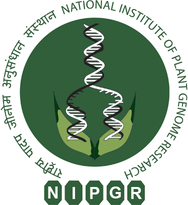TIGR2ESS: Transforming India's Green Revolution by Research and Empowerment for Sustainable food Supplies
UK collaborators: University of Cambridge, National Institute of Agricultural Botany (NIAB), John Innes Centre, Rothamsted Research, University of East Anglia, University of Essex, Centre for Global Equality, The British Dietetic Association.
Indian Partners: 19 higher education and research institutes, 7 NGOs
Rationale: India’s Green Revolution in the 1970’s produced significant improvements in crop yields and food production country wide, the positive impacts of which are still felt today. Over the last fifty years, the tools developed during the green revolution have been put to use by India’s farmers to transform the country into one of the world’s largest agricultural producers. However, the overuse of chemical fertilisers and pesticides along with water have now expanded to unsustainable levels. Furthermore, new challenges driven by changes in migration and settlement patterns, due to new commodity markets and economic pressure, along with an expanding population and significant environmental change have proven difficult to address with only the tools we have.
The TIGR2ESS project aims to take a multidisciplinary approach to these issues by defining the requirements and setting the policy agenda for a ‘second Green Revolution’ in India, framed by demographic changes affecting rural communities and feminisation of smallholder farming systems. The project will do this by developing and strengthening alliances between a network of UK and Indian experts, to build long-term collaborative partnerships in research toward sustainable agriculture, setting the path for a new Green Revolution.
“The Project addresses Four Key Research Questions:
TIGR2ESS is organised into six Flagship Projects, each designed to address a subset of these key questions:
As a part of Flagship Project Two (FP2), we in the Lawson Lab at the University of Essex, along with our partners at the University of Cambridge, the National Institute of Plant Genome Research (NIPGR) and the International Crops Research Institute for the Semi-Arid Tropics (ICRISAT), aim to identify crops that use water more efficiently without compromising productivity. Using germplasm relevant to agriculture in India, we will identify crop accessions that save water, thereby allowing farmers to maintain crop yields whilst reducing their demand for water.
Indian Partners: 19 higher education and research institutes, 7 NGOs
Rationale: India’s Green Revolution in the 1970’s produced significant improvements in crop yields and food production country wide, the positive impacts of which are still felt today. Over the last fifty years, the tools developed during the green revolution have been put to use by India’s farmers to transform the country into one of the world’s largest agricultural producers. However, the overuse of chemical fertilisers and pesticides along with water have now expanded to unsustainable levels. Furthermore, new challenges driven by changes in migration and settlement patterns, due to new commodity markets and economic pressure, along with an expanding population and significant environmental change have proven difficult to address with only the tools we have.
The TIGR2ESS project aims to take a multidisciplinary approach to these issues by defining the requirements and setting the policy agenda for a ‘second Green Revolution’ in India, framed by demographic changes affecting rural communities and feminisation of smallholder farming systems. The project will do this by developing and strengthening alliances between a network of UK and Indian experts, to build long-term collaborative partnerships in research toward sustainable agriculture, setting the path for a new Green Revolution.
“The Project addresses Four Key Research Questions:
- What should a Second Green Revolution deliver?
- Can crop productivity increase, whilst maintaining yield stability?
- Can water supplies be shared to match community demand?
- How can we best engage and education for local community wellbeing?”
TIGR2ESS is organised into six Flagship Projects, each designed to address a subset of these key questions:
- FP 1: Defining a Second Green Revolution for India
- FP 2: Crop Sciences – Water Use and Photosynthesis
- FP 3: Heat and Drought Resilience in Wheat
- FP 4: Water Use and Management in a Changing Monsoon Climate
- FP 5: Supply Chains: Modeling Water Use for Sustainable Livelihoods
- FP 6: Impacting Well-being in Rural and Urban Communities
As a part of Flagship Project Two (FP2), we in the Lawson Lab at the University of Essex, along with our partners at the University of Cambridge, the National Institute of Plant Genome Research (NIPGR) and the International Crops Research Institute for the Semi-Arid Tropics (ICRISAT), aim to identify crops that use water more efficiently without compromising productivity. Using germplasm relevant to agriculture in India, we will identify crop accessions that save water, thereby allowing farmers to maintain crop yields whilst reducing their demand for water.
Meet the team
Essex

Project Lead/ Essex Lead:
Professor Tracy Lawson Professor of Plant Physiologist University of Essex. [email protected] 
|

|



